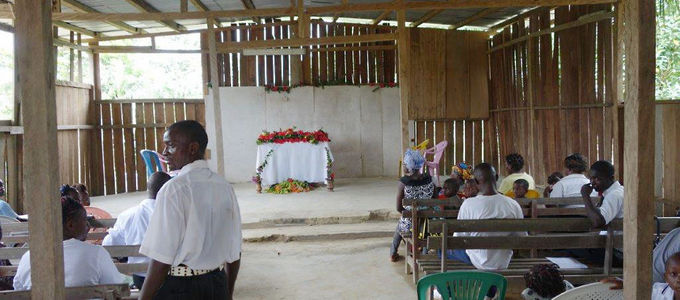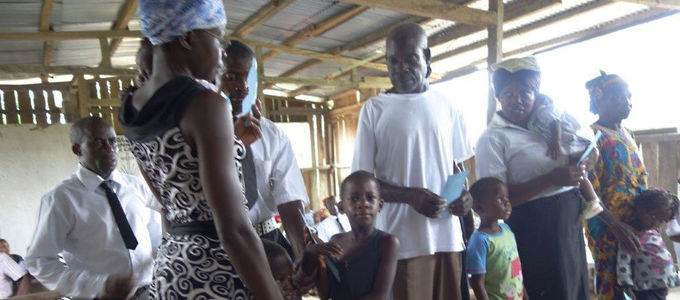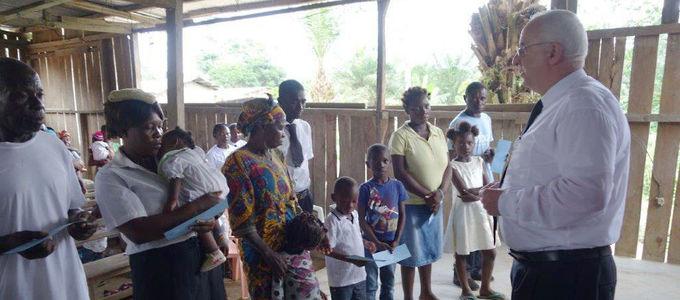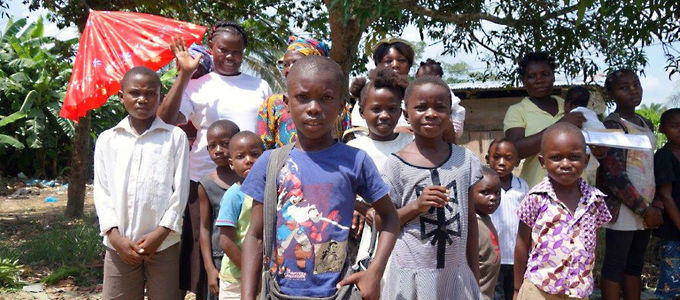Lambaréné: a big little town in the rainforest
Lambaréné is a small city in west-central Gabon in West Africa. In Galoa, an indigenous language, the name means: “We want to try it.” This probably did not only apply in the time of Albert Schweitzer, but also today for the New Apostolic congregation.
Lambaréné—a provincial capital—is located in the Central African rainforest. The town has a population of about 30,000. The average temperature is 27 degrees Celsius. Albert Schweitzer, winner of the famous Nobel Peace Prize, founded a hospital here over a hundred years ago, in 1913. At the time, the country was still a territory of French Equatorial Guinea. The hospital he founded still exists. It has departments for internal medicine, paediatrics, and surgery. There is also a maternity clinic, a dentistry clinic, and since 1981 a medical research unit, which—in co-operation with notable universities such as the Institute for Tropical Medicine of the University of Tübingen—focuses on malaria research.
A small congregation
Since the mid 1990s there has been a small New Apostolic congregation here—with a chequered history. It was founded by ministers from Switzerland who travelled to the country between 1989 and 1998. After the unexpected death of the rector and subsequent problems with the congregation’s premises, Priest Céléstin Salou from Libreville, the national capital, agreed to move to Lambaréné and work there as rector.
Since 1999, the Church in Gabon has been supported by the New Apostolic Church Southern Germany. Apostle Volker Kühnle is responsible. He says: “About 35 members attend the services on Sundays. The congregation meets in rented quarters in a suburban neighbourhood. Like in many other African congregations that are located in city districts we benefit from a phenomenon: during the months that children are in school, quite a number attend our services. These children come from surrounding villages and visit secondary schools here.”
Special challenges
The picture changes completely during the holidays. Then the congregation is comprised of mostly elderly members. “This makes continuous work in the congregation challenging,” the Apostle says.
Currently, the congregation is cared for by Evangelist Salou and a Priest and a Deacon. Together with District Elder Sébastian Moulomba, who lives some 200 kilometres away, the Evangelist still looks after other congregations in area covering about 80 kilometres. Apostle Kühnle says: “I try to visit the region once every two years. Apostle Félicien Ebanga Edoa from Cameroon assists with the work in Gabon. He is usually there once a year.”
About Albert Schweitzer
Ludwig Philipp Albert Schweitzer was born in 1875 near Colmar in France. He died on 4 September 1965 in Lambaréné, in the hospital which he founded in 1913. The German-French mission doctor was also a theologian, philosopher, organist, and a pacifist. He earned doctorates in philosophy, theology, and medicine when he was 38 and qualified as a professor before he left for Gabon in 1913. He was awarded the 1952 Nobel Peace Prize, which he accepted in the year 1954. His ethics of life culminated in the sentence: “I am life that wants to live in the midst of life that wants to live.”
Article info
Author:
Date:
Keywords:
Peter Johanning
16.07.2016
Gabon,
International,
Congregational life,
People/Personalities












